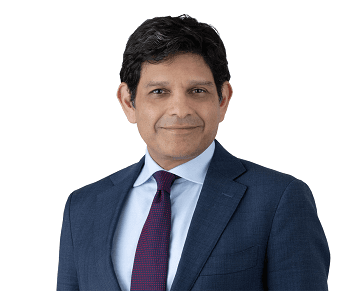
Keeping Foreign Investments Safe From Harm
Clifford Chance’s Romesh Weeramantry on due diligence when advising clients on foreign investment.
BY ASHUTOSH RAVIKRISHNAN
Advising clients on foreign investments can be tricky, as lawyers have to deal with a patchwork of laws and regulations that they may not be altogether familiar with. But due diligence is key, as Dr Romesh Weeramantry (pictured) knows all too well. As Counsel at Clifford Chance, he has seen worst-case scenarios where investors who did not carry out the proper front-end due diligence work have found themselves in deep water when things went awry. “Investors have come in saying, ‘I’ve spent millions of dollars on this foreign investment and now the recipient country’s government has acted in a way that may have rendered my investment worthless. What can I do?’” shares Dr Weeramantry.
The investors in question represent industries as diverse as infrastructure, natural resources and mining. Treaties such as the ASEAN Comprehensive Investment Agreement (ACIA) are designed to protect investors in this type of scenario. “To benefit from these treaties, what the investors should have done is something called investment treaty planning, where you structure the corporate chain through a country that has an appropriate investment treaty with the target country,” explains Dr Weeramantry, who also heads the International Dispute Resolution team at the National University of Singapore’s Centre for International Law.
When advising such investors, Dr Weeramantry and his team at Clifford Chance first try to understand their corporate chains. “In some cases, the target country is already covered by the existing corporate structure. But we’ve also had ones that didn’t; for instance, Australian investors investing directly into Africa, which has few investment protection treaties with Australia. That is the type of scenario where problems arise,” he tells SAL. “If they want to invest in a country that does not share a treaty with the investor’s country of incorporation, the diligent advice would be to incorporate in a country that does have such a treaty at the time the investment is made — it may be too late to incorporate once the investment is under threat.”

MORE THAN JUST JURISDICTIONS
Beyond looking at jurisdictions, lawyers should also be cognizant of the denial of benefits clauses in investment protection treaties like the ACIA. These prevent corporations from incorporating shell companies in Southeast Asian jurisdictions just to reap the benefits of ACIA.
“For foreign investors who want to use Singapore as a hub to invest into ASEAN, ACIA requires you to have substantive business operations in Singapore to benefit from its protections,” says Dr Weeramantry. “But what exactly is substantive? Is one person in an office in Singapore sufficient to satisfy that requirement?” he adds, highlighting one of the challenges faced by lawyers advising on foreign investments. Lawyers should be mindful of these grey areas and potential pitfalls so that they can adequately protect their clients. “You don’t want a case where you file a claim under ACIA before an international tribunal and then you’re deemed to not have satisfied the pre-requisites of the treaty. This basically nullifies the tribunal’s ability to determine your rights.”
One can’t just glean these grey areas by reading the text of treaties, continues Dr Weeramantry. “Having been through the investment treaty arbitration process is important to contextualise the various requirements and explain them to front-end deal advisory teams,” he says. And he is well-placed to do just that, being a seasoned international arbitration practitioner.
He will share his findings and observations from the perspective of the ACIA at a lecture next week taking place as part of the Singapore and the ASEAN Comprehensive Investment Agreement roundtable. Organised by the ASEAN Law Association’s Singapore chapter, the virtual roundtable features three presentations, a panel discussion and a question-and-answer session.
It will be opened by Chairman of the ASEAN Law Association (Singapore), and Vice-Chairman of the ASEAN Law Institute, the Honorable the Justice Lee Seiu Kin, with closing remarks by Vice-Chairman of the ASEAN Law Association (Singapore), the Honourable the Justice Pang Khang Chau. Other speakers include:
- Deputy Director-General (Economics & Social) Mr Derek Loh (International Affairs Division, Attorney-General’s Chambers)
- Professor Locknie Hsu (Professor of Law, Singapore Management University)
- Mr Minn Naing Oo (Managing Director, Allen & Gledhill – Myanmar)
- Mr Eric Peh (Assistant Director, ASEAN Division, Ministry of Trade and Industry)
- Mr Francis Xavier SC (Regional Head, Disputes Practice, Rajah & Tann)
“Attending the roundtable will be one way for lawyers to understand what they need to look out for and understand right at the start of the deal so that problems don’t arise if a dispute does come about.”
Registration for the roundtable closes on Friday, 5 February 2021. Admission is free; to register, email [email protected].

